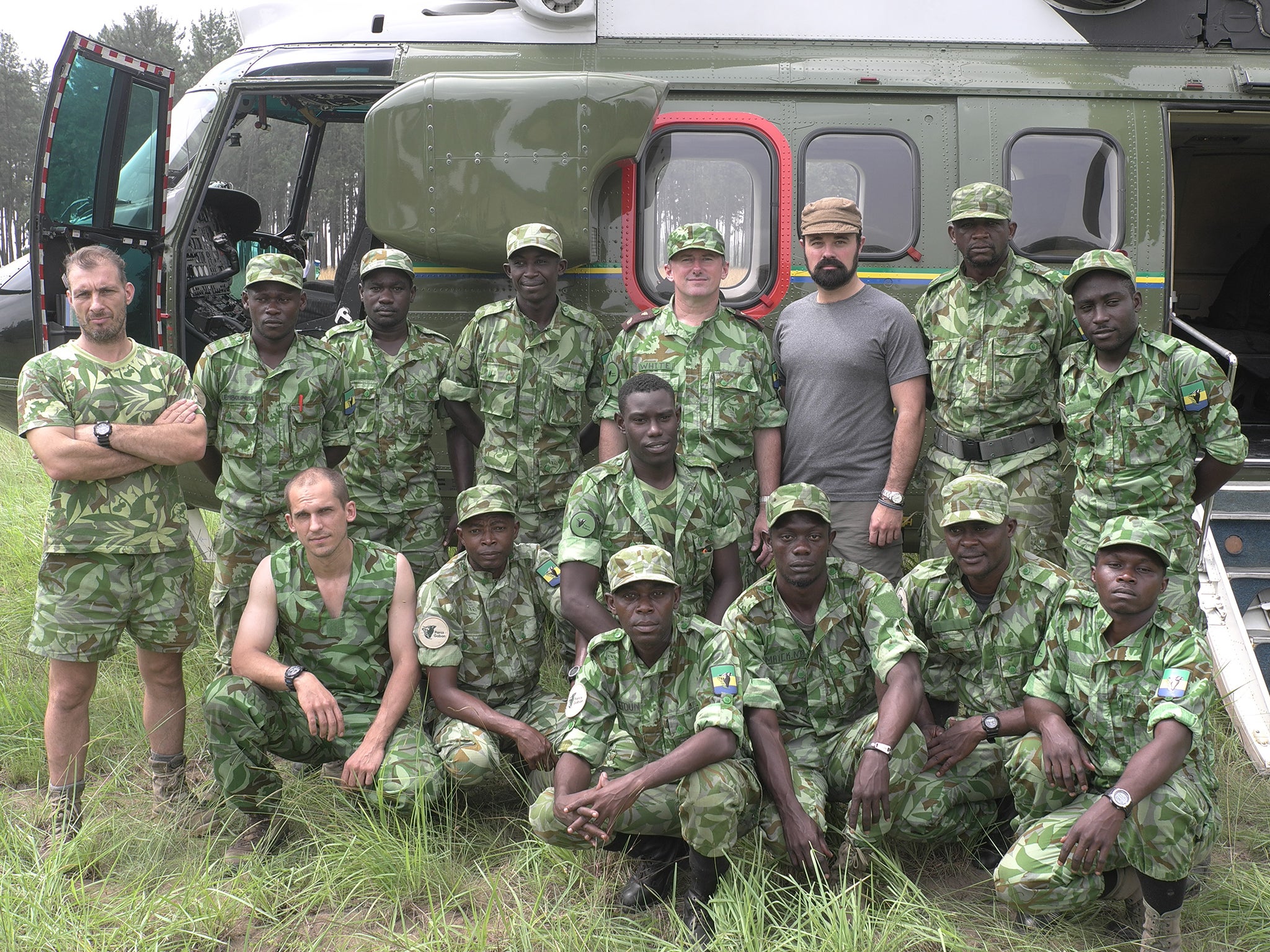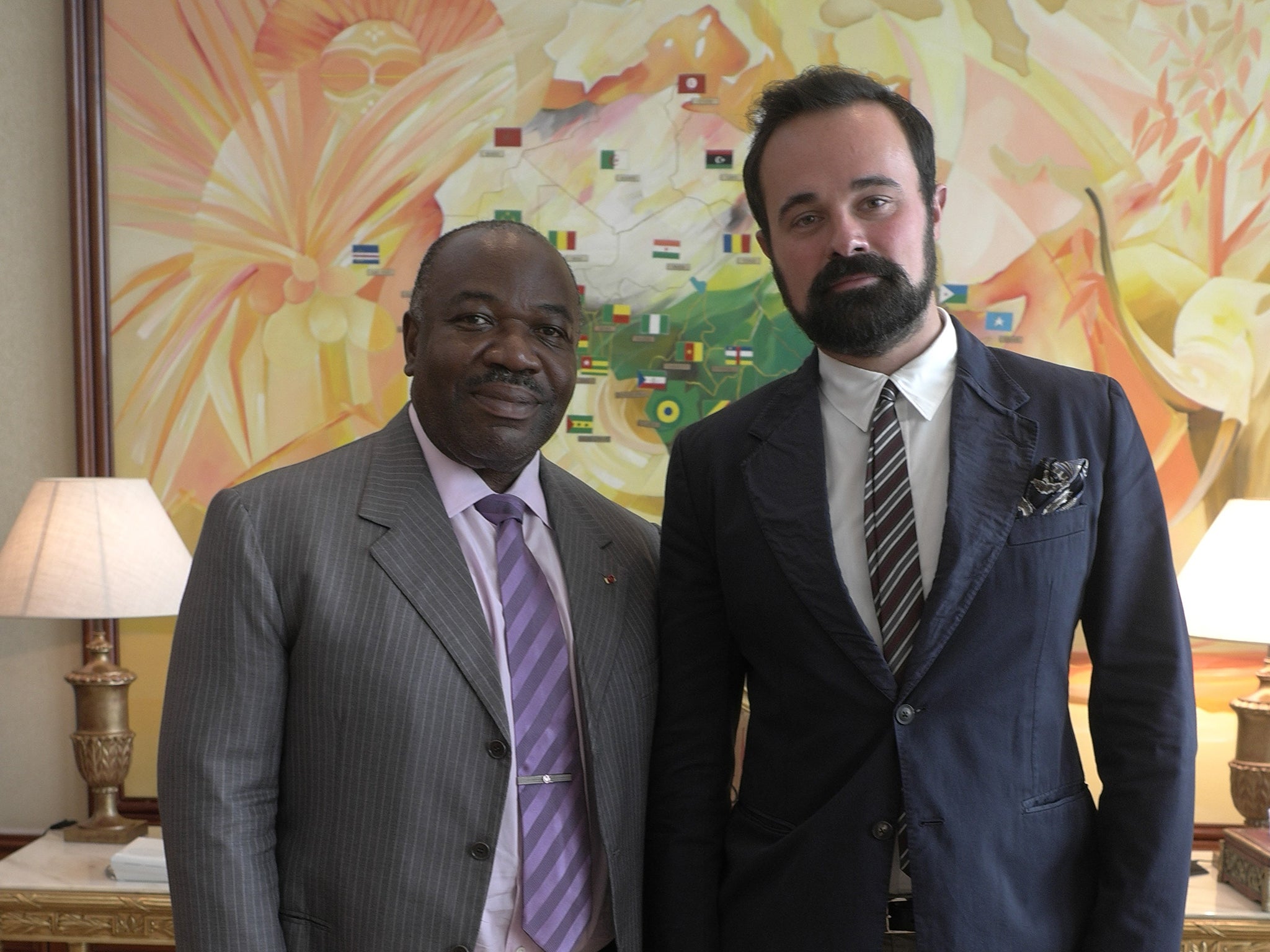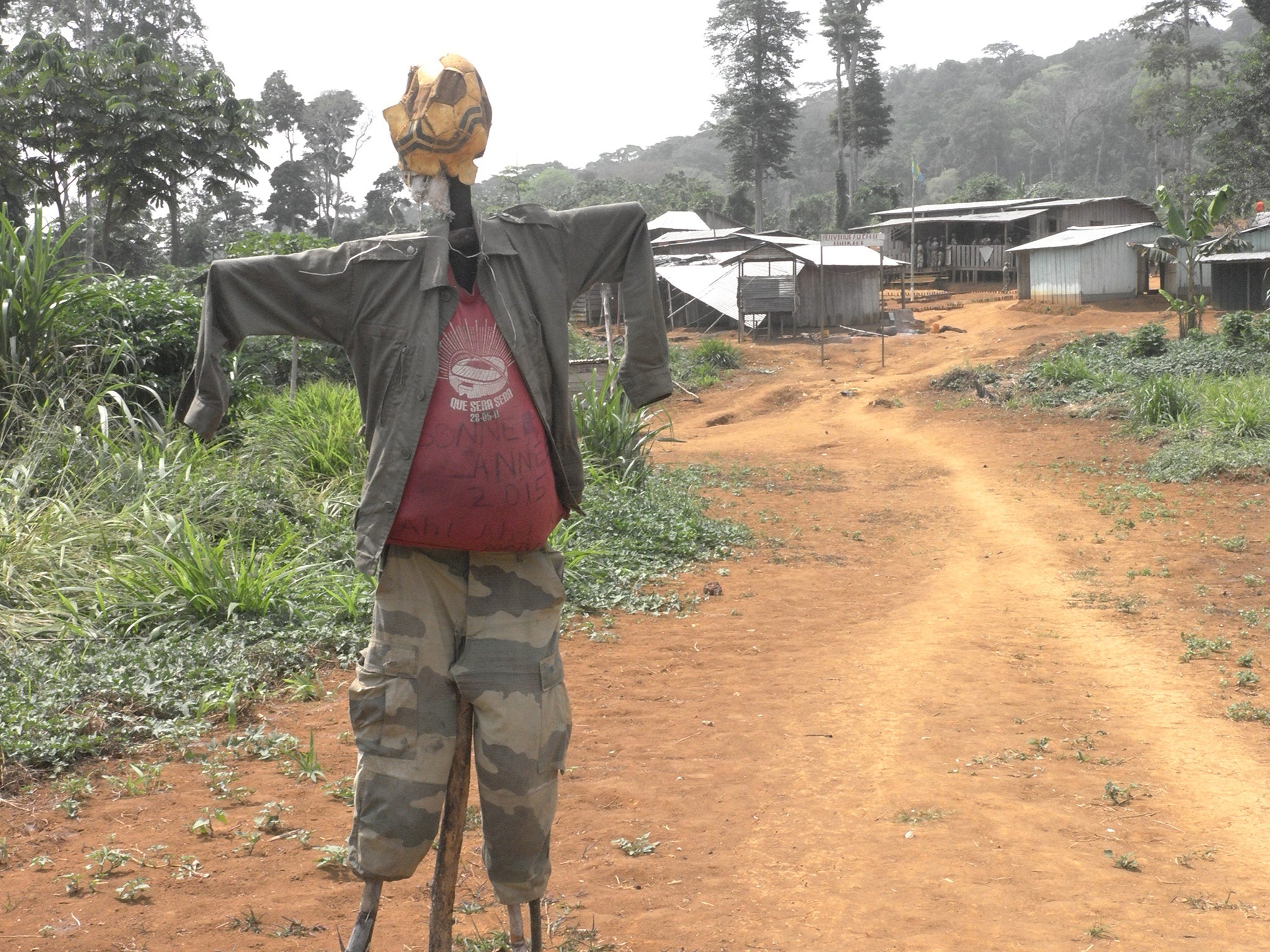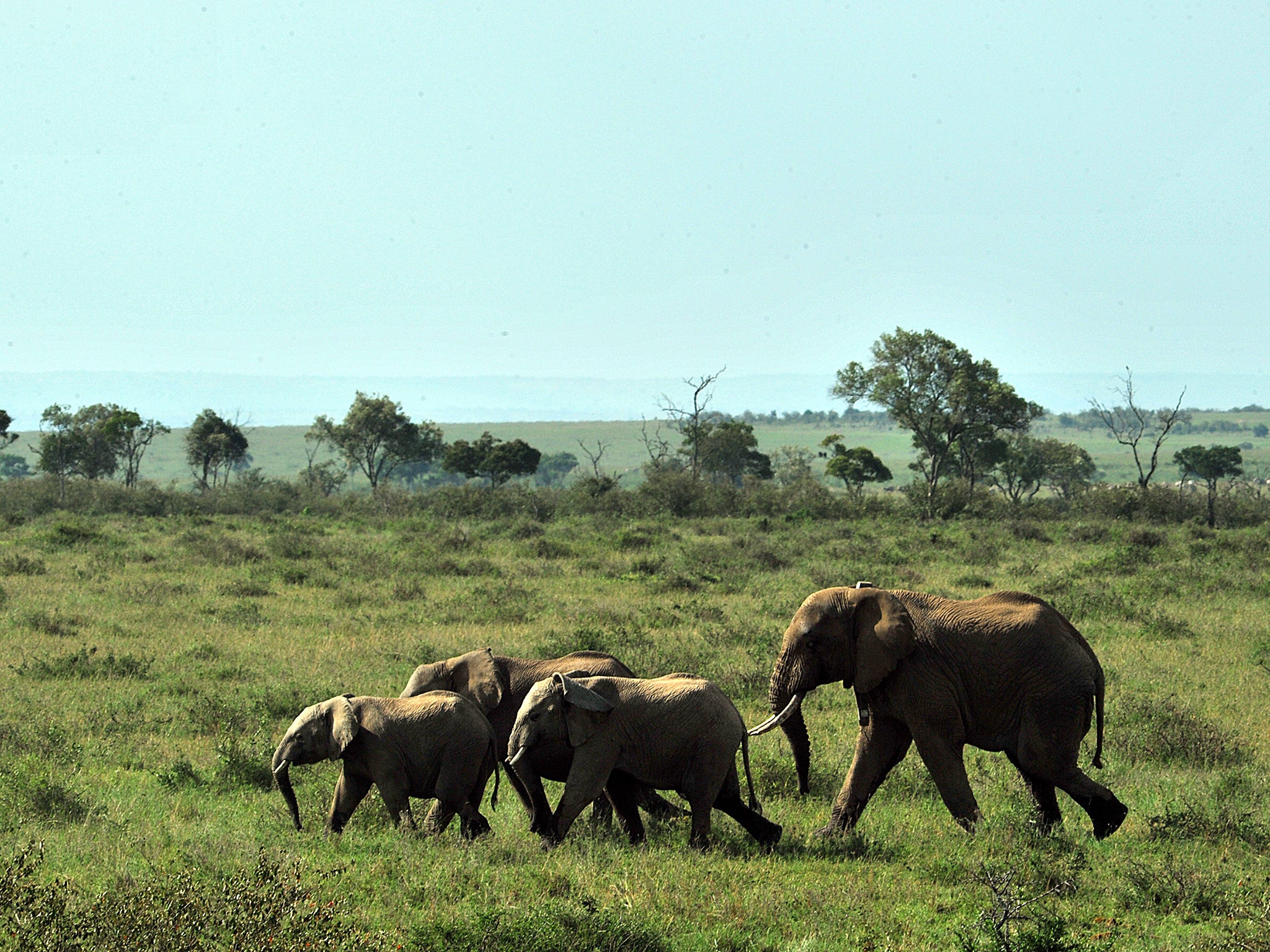Gabon: Where the fate of the forest elephant will be decided
A year on from The Independent’s phenomenally successful campaign, Evgeny Lebedev returns to Africa to find out how the battle against the poachers is being fought – and won


Your support helps us to tell the story
From reproductive rights to climate change to Big Tech, The Independent is on the ground when the story is developing. Whether it's investigating the financials of Elon Musk's pro-Trump PAC or producing our latest documentary, 'The A Word', which shines a light on the American women fighting for reproductive rights, we know how important it is to parse out the facts from the messaging.
At such a critical moment in US history, we need reporters on the ground. Your donation allows us to keep sending journalists to speak to both sides of the story.
The Independent is trusted by Americans across the entire political spectrum. And unlike many other quality news outlets, we choose not to lock Americans out of our reporting and analysis with paywalls. We believe quality journalism should be available to everyone, paid for by those who can afford it.
Your support makes all the difference.The army had never before pushed this far into the interior in such numbers. The Gabonese region of Minkébé is normally uninhabited, other than for the occasional hunter or Baka pygmy tribe. Pressed up against the Congo-Brazzaville and Cameroon borders, its national park is covered by virgin equatorial forest largely untouched by man. Now it had proved fertile ground for the ivory poachers.
Tusks seized in the United States were traced back to the region. The few conservationists willing to undertake the trek into the park came out with the warning that poachers were running amok. The authorities reacted with force. For the first time in Gabon’s history, the army was dispatched into the forest.
Deep in its heart, a camp of 6,000 people was discovered, ruled by poaching gangs. Weapons were available to any who could afford them, prostitutes were marched up the old logging trails, and local witchdoctors sold curses for handfuls of cash. It was a new Wild West, built on the lure of Africa’s “white gold”.
Two hundred Gabonese paratroopers purged the site. By then, however, the worst damage was already done. Some 11,000 elephants had been slaughtered, almost a quarter of the country’s entire elephant population.
When I reached Minkébé you could still see the remains of the poachers’ shanty town. Amid the clammy heat there were bars and nightclubs with tatty posters advertising cheap drinks; traders boasting the prices they paid for ivory and panned gold; rows of wooden sleeping huts being reclaimed by the jungle.
“This was a place with no law and order,” said Dr Joseph Okouyi, who is now head of wildlife protection in Minkébé. “The big men who controlled the place had their own militia. There were constant fights and people getting macheted to death.”

Since the price of ivory soared as the Chinese economy boomed – and the Chinese middle classes showed an almost insatiable desire to spend this new-found wealth on ivory trinkets – organised criminal gangs have been hunting elephants, and thus directly challenging the authority of the states in which the animal is found.
For Gabon, Minkébé was the wake-up call. Under the leadership of its Sorbonne-educated President, Ali Bongo Ondimba, the wildlife service has been expanded from 60 eco-guards to more than 650, and its budget increased from $1m to $18m to pay for new vehicles, uniforms, sniffer dogs and – when required – weapons. “We’re under attack,” the President, 56, told me. “We had US Marines come to train our elite rangers to face the enemy in a combat situation. A lot of strength is needed. We were able to save the gorilla. We were able to save the leopard, not least because of ladies refusing to wear leopard-skin coats. We must now save some of the elephants.”
Last February, representatives of 46 countries gathered in London to agree a declaration to tackle the illegal wildlife trade, which is worth up to £12bn a year and rated the fourth most valuable to crime after human trafficking, the arms trade and drugs.
The countries present agreed a series of actions, including addressing corruption, adopting legislation for tougher penalties against poachers, and recruiting more law enforcement officers. William Hague, then Foreign Secretary, said he believed this meant “we have begun to turn the tide”.
I came to Gabon to see for myself the extent to which those hopes have become reality. Gabon is particularly important to the survival of the elephant as it is one of the few homes remaining for one of its three sub-species.
The Indian elephant and the Africa savannah elephant roam across vast expanses of land. But in Gabon is found the last concentration of the smaller forest elephant, whose straight tusks are of particularly fine ivory.
Once, the forest elephant spread across the Congo river basin. Recent years, however, have seen numbers decline sharply in the Democratic Republic of the Congo (DRC) and the Central African Republic as those two countries were beset by civil war, criminal gangs and anarchy. In the DRC fewer than 2,000 are believed to be still alive.
More forest elephants are now found in Gabon than in the rest of Africa combined. It is not an exaggeration to say that it will be in Gabon’s ability to protect its surviving 40,000 that the future of the animal will be decided.
The head of Gabon’s Agence Nationale des Parcs Nationaux is a British-born zoologist, Lee White. He was among the first to highlight the scale of the poaching threat, which led to the President putting him in charge of the country’s response. He has since overseen the 11 per cent of the country made up of national parks and led the rapid expansion of the Gabonese wildlife service from being a body that, when he took over, did not have a single vehicle.

White, 49, is honest about the challenge. Gangs 30 strong are still crossing from Cameroon equipped with satellite phones, chainsaws for removing tusks, and high-powered rifles that he maintains are often provided by corrupt Cameroon officials.
“If we are not vigilant then we know from experience that things can change very quickly,” he said. “My job is to create a national park service almost from scratch at a time of war because of the situation in Minkébé. The President realises, and the government realises, it is going beyond a wildlife issue and is becoming a national security issue.”
The 12 months since the London conference has seen progress. In Kenya, more government rangers were trained to join the fight, harsher penalties brought in and the judiciary trained to better expedite poaching cases. Chad destroyed its ivory stockpiles. Malawi pledged to introduce new wildlife protection laws.
But there is still an elephant killed every 20 minutes in Africa. Selous in Tanzania still has one of the highest rates of poaching on the continent, while in Mozambique the situation is almost as bad. A national park in northern DRC is reporting four contacts with poachers a week. The savagery of the subsequent firefights has resulted in ex-French special forces personnel being brought in to help.

It is why I am proud to announce President Bongo is taking more steps to protect his country’s wildlife. To mark my visit he signed into law a commitment to send additional troops to Minkébé, triple the length of their deployment, and to further strengthen Gabon’s wildlife commitments.
Perhaps most importantly, he also pledged to work with Space for Giants, the elephant protection charity which was the focus of The Independent’s 2014 Christmas campaign and of which I am now patron, to help recruit other African leaders to the anti-poaching cause. As he writes in this newspaper on Friday: “We must act now, and we must act united.” The poaching crisis is an Africa-wide problem. To face it will require an Africa-wide response.
The President has already dispatched wildlife rangers to the Central African Republic to protect that country’s elephants from warlord bands. He has started working closely with Chad, Ethiopia, Tanzania and Botswana on a concerted cross-continent Elephant Protection Initiative.
But these steps, as President Bongo knows, can only be the start. The “united” effort must involve not only governments but the major multinationals operating in Africa and the leading NGOs established there. This is the coalition that needs to work together if the African elephant is to be saved in the wild. Only then can the commitments of last year’s London conference ever hope to be fully realised – and the poachers leaving Africa’s savannahs and forests littered with bloodied carcasses finally be defeated.
Evgeny Lebedev is the owner of ‘The Independent’ and ‘Evening Standard’. Follow him on Twitter: @mrevgenylebedev
To learn more about Space for Giants visit spaceforgiants.org
Join our commenting forum
Join thought-provoking conversations, follow other Independent readers and see their replies
Comments